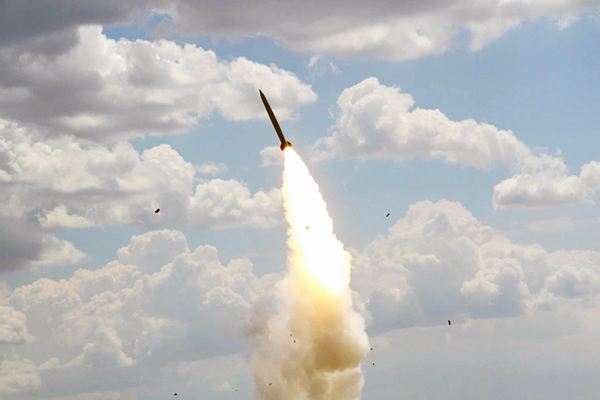
Russia’s defence ministry says it attacked Ukraine with cruise missiles from ships in the Black and Caspian Seas, and with hypersonic missiles from Crimean airspace.
Russian defence ministry spokesman Major General Igor Konashenkov said on 20 March that the Kinzhal (Dagger) hypersonic missile hit a Ukrainian fuel depot in Kostiantynivka near the Black Sea port of Mykolaiv.
He added: “Kalibr cruise missiles were launched from the waters of the Black Sea against the Nizhyn plant that repairs Ukrainian armoured vehicles damaged in fighting.”
The attacks marked the second day in a row that Russia used the Kinzhal, a weapon capable of striking targets 2,000km (1,250 miles) away at 10 times the speed of sound.
Konashenkov added that another attack by air-launched missiles hit a facility in Ovruch in the northern Zhytomyr region where foreign fighters and Ukrainian special forces were based.
The previous day, the Russian military said the Kinzhal had been used for the first time in combat to destroy an ammunition depot in Diliatyn in the Carpathian Mountains in western Ukraine.
‘Kamikaze drones’
Russia prides itself on its advanced weaponry, and President Vladimir Putin said in December that Russia was the global leader in hypersonic missiles, whose speed, manoeuvrability and altitude make them difficult to track and intercept.
The Kinzhal missiles are part of an array of weapons unveiled in 2018. Russia first used the hypersonic missile during its military campaign in Syria in 2016.
Putin has called the Kinzhal missile “an ideal weapon” given its speed and ability to overcome air-defence systems.
“This is a missile capable of carrying nuclear warheads and is believed to be undetectable by western air defence systems,” said Al Jazeera’s Dorsa Jabbari, speaking from Moscow. “It is being called an unstoppable ballistic missile.”
Putin announced an array of new hypersonic weapons in 2018 in one of his most bellicose speeches in years, saying they could hit almost any point in the world and evade a US-built missile shield.
The following year, he threatened to deploy hypersonic missiles on ships and submarines that could lurk outside US territorial waters if Washington moved to deploy intermediate-range nuclear weapons in Europe.
The US has actively pursued the development of hypersonic weapons – manoeuvering weapons that fly at speeds of at least Mach 5 – as a part of its conventional Prompt Global Strike programme since the early 2000s, according to a new congressional report.
These weapons could enable “responsive, long-range, strike options against distant, defended, and/or time-critical threats [such as road-mobile missiles] when other forces are unavailable, denied access, or not preferred”, said former Commander of US Strategic Command General John Hyten.

















